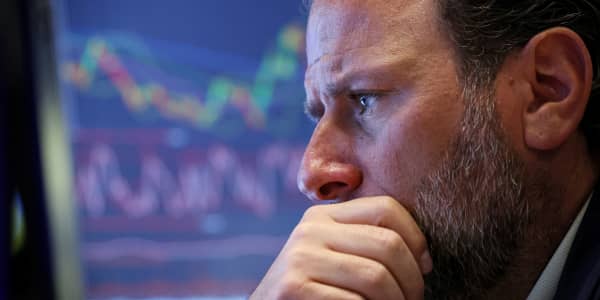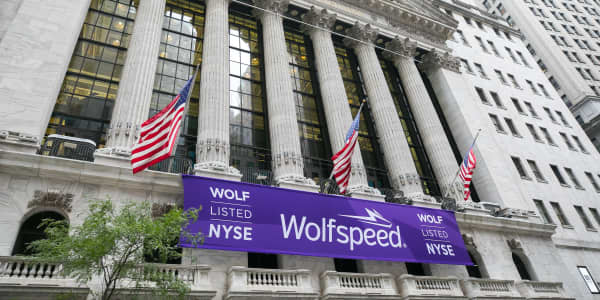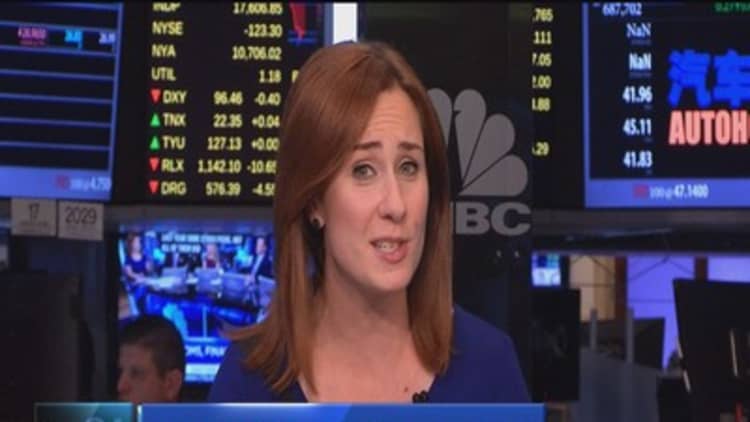
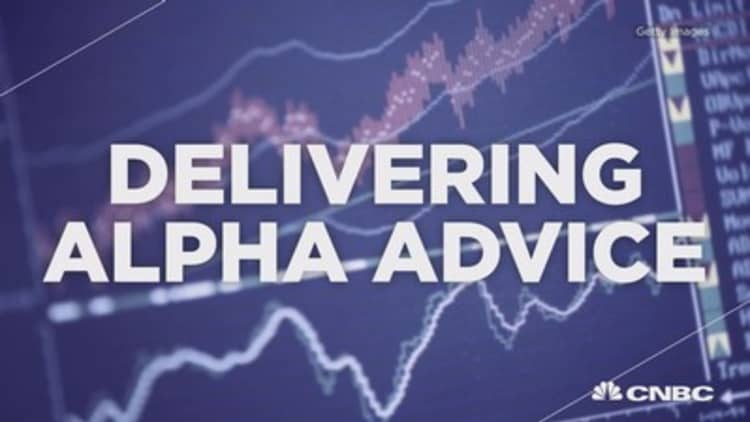
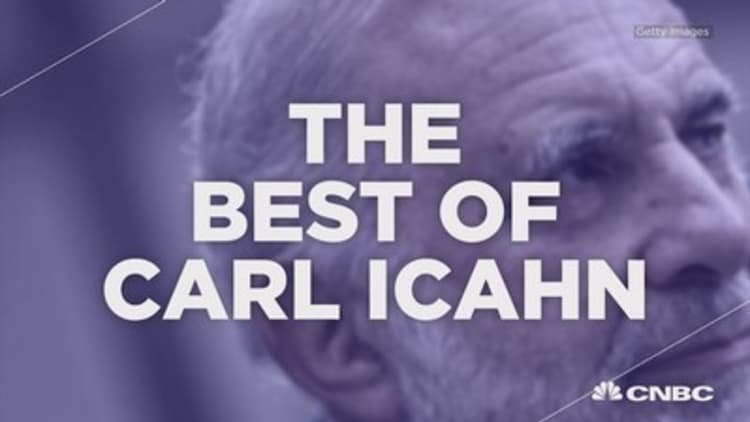
For participants in last year's Delivering Alpha hedge-fund conference, the 12 months since was a period of huge gains in some stocks and stinging losses in others.
Names such as Valeant and Family Dollar rose to double-digit percentage gains, while others, such as SandRidge Energy and Hertz, made huge givebacks.
Of an array of investment ideas presented at the July 16 gathering, an annual event presented by CNBC and Institutional Investor, health-care names HCA Holdings, Actavis and Allergan were some of the outstanding performers, while energy-sector companies Atlas and Oasis Petroleum logged horrendous losses as the price of crude oil slumped.
"Stock picking, credit selection, and alpha generation in general has been more challenged" during the past year, said Mary Callahan Erdoes, CEO of J.P. Morgan's $2.3 trillion asset management business in a telephone interview Wednesday.
"We, along with several hedge-fund managers, have had tremendous success in it," she added. "The key is being really selective, not getting caught up in the hype and having good long term judgment about the stocks that are going to survive. That's what's basically separating the wheat from the chaff. They're challenging markets obviously."
Leon Cooperman, the respected stock picker who runs the $9 billion hedge fund Omega Advisors, witnessed that firsthand.
A group of stocks he described as opportunities for "growth at a reasonable price," including Actavis, Citigroup and Thermo Fisher Scientific, all rose by the considerable amounts of 40 percent, nearly 11 percent and 11 percent, respectively.
But practically every other name he touted—ranging from Atlas Energy, which fell 90 percent, to Hertz, which dropped 39 percent—was down dramatically in the year that followed. (The performance of Actavis is through March 17, when it bought rival Allergan and, a month later, took on its name.)
Speaking of the market's tone last summer, Cooperman said "bull markets are born in pessimism, they grow in skepticism, they mature in optimism and they die in euphoria. And I want to say this ex-Janet Yellen (the Federal Reserve chair): I see not a lot of large-cap meaningful companies that are selling at euphoric prices. So we passed pessimism, we passed skepticism, I think we're in the stage of optimism but I don't think we're in euphoria."
Two key presenters, Trian Fund Management co-founder Nelson Peltz and Starboard Value chief Jeff Smith, had nearly all winning stock picks.
Peltz, who didn't unveil any new investment ideas, nonetheless discussed his company's long positions in PepsiCo, Family Dollar and Bank of New York Mellon, which were up nearly 7 percent, 29 percent and 8 percent, respectively. Speaking last summer of Pepsi, with whom he settled his differences six months later after the appointment of a new director to the board, Peltz noted that "the stock is not moving because of earnings … the stock is moving because people, shareholders, see the wisdom of what we are saying."
Smith spoke of only one idea, the packaging company MeadWestvaco.
"We believe in the sum of the parts value conservatively values the company of at least $59 a share again compared to today's share price of around $44 a share," Smith said last July. "There are many levers to pull, there are many opportunities to unlock this value."
Indeed, MeadWestvaco shares touched close to $55 in February, before sliding back to the high $40 range ahead of a merger with competitor Rock-Tenn that closed in early July.
Both Smith and Peltz will appear at the fifth annual "Delivering Alpha" conference in New York on July 15, and are expected to talk about new ideas then.
Topping the agenda is likely to be the macroeconomic concerns around the world, notably the possibility of a Greek exit from the euro currency and the huge downdraft in Chinese stocks, that are bedeviling markets now.
With the understandable focus on Europe, the issues in China were being underplayed, Erdoes added.
"These are the kind of things that if you look back on past market stresses that have occurred in the world, you need to watch very closely," she said. "Because when you get unwindings like this combined with liquidity gaps that we keep seeing in the market, you have to think through what might trigger something else."





